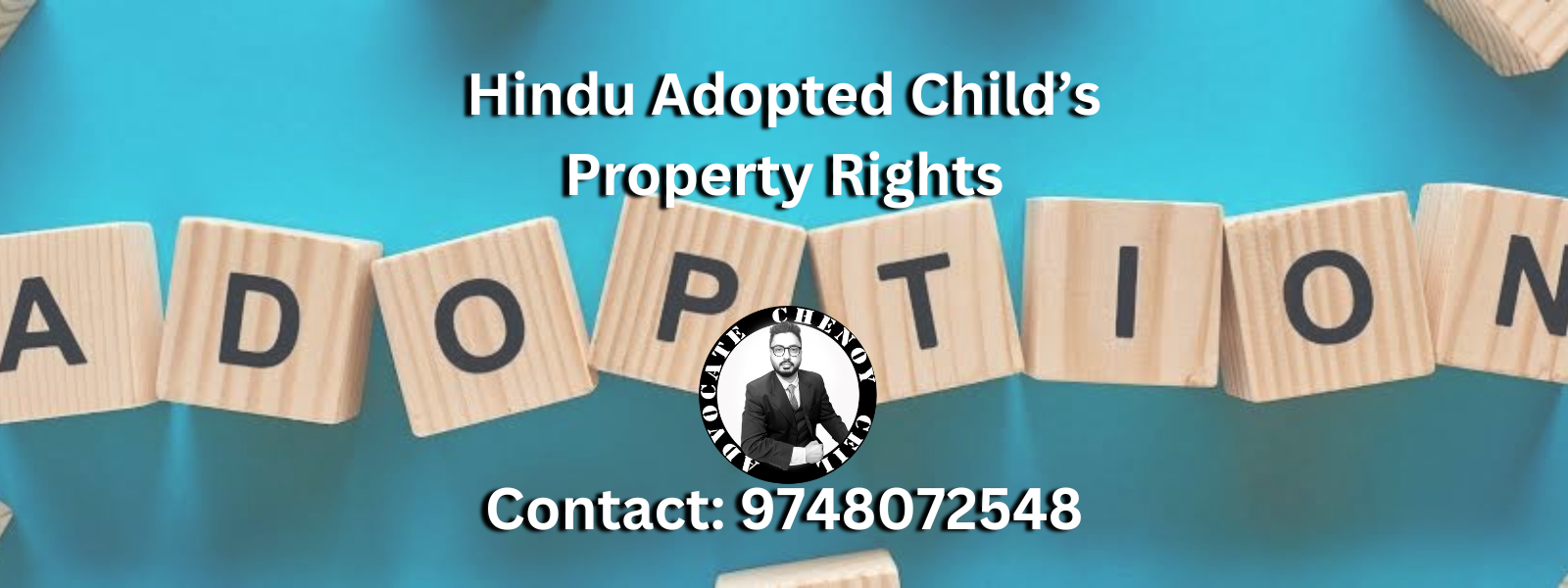In a densely populated country like India, adoption is a very sensitive issue.
Property Rights of a Hindu Adopted Child in West Bengal and India
Every child, up to age of 18, who has no one to take care of them or who has been abandoned because of family issues or illegitimacy of birth, can be adopted.
In a normal situation, an adopted child has similar rights of a legal heir. The Hindu Succession Act 1956 does not include the definition of the term “son” and that makes the adopted child a legal heir just like the biological son (Class- I). If a Hindu man dies without making a Will, his property will be legally inherited by the Class-I heirs in West Bengal as well as rest of India.
Hindu Law and its Take on Adoption:
Under the Hindu Adoption and Maintenance Act, 1956 adoption has been made legally possible in India. According to the Act, the adoptive parents must treat the adopted child as their natural born and there should not be any discrimination between the adopted child and the biological one.In the landmark case of Bal Gangadhar Tilak v Shrinivas Tilak, it was observed by the Privy Council that Hindu adoption is not only a mere process of legalising the adopted child, but it also gives the adopted child, the right to perform every religious ritual for the family.
Adopted Child’s Right in the Property:
An adopted child can claim his rights on his adoptive parent’s property just like a biological child. The adopted child is legally entitled to inherit from his adoptive father. It is important to note that, according to the Hindu Adoptions and Maintenance Act 1956, with the successful adoption process the adopted child loses all his rights to property in his biological family, including his rights to claim any share in the biological father’s property, or any share in the coparcenary estate. This applies to adopted children in West Bengal and Kolkata as well.
Rights in the Property of the Adoptive Father:
According to Section 8 of the Hindu Succession Act, 1956, one’s father’s assets would devolve upon his Class I heirs. Class 1 heirs include a son, a daughter, a widow, a mother, a son of a pre-deceased son, a daughter of a pre-deceased son, a son of a pre-deceased daughter, a daughter of a pre-deceased daughter, a widow of a pre-deceased son, a son of a pre-deceased son of a pre- deceased son, a daughter of a pre-deceased son of a pre-deceased son, a widow of a pre-deceased son of a pre-deceased son.
The adopted child has similar rights like the legitimate child over the ancestral property in West Bengal and rest of India. However, in case of a separate property or a self-acquired property, the adoptive father can make a Will which might exclude the adopted child from any stake in that estate.
Rights in the Property of the Biological Father:
With the success of the adoption process, the biological relationship between the natural father and the son-given comes to an end. The son-given can never claim any stake in the property of the biological father unless the latter makes a Will to make that possible.Whereas the Bombay High Court has held that an adopted child will forfeit his rights to his biological parents’ property as a coparcenar that is already vested in him, the Calcutta High Court and the Madras High Court have held that this right to property by inheritance which is already vested in an adopted child before adoption will stay intact and not be extinguished.
Exceptional Cases:
There are some exceptional situations under which the adopted child can not exercise any rights over the property of his adoptive father.
- No adoption can be made when the parents have a legitimate child. A child adopted under this circumstance will not have any right in the adopter’s property.
- If the adoption process is not legally valid, the child will not be able to legally establish his relationship with the adoptive father.
- An adopted child will not have any right to ancestral property of his adoptive parents if they are themselves disqualified from such property.
If you have any query regarding the adoption process in West Bengal and Kolkata or the rights to the property of an adopted child, then do get in touch here or email [email protected]with your queries.
